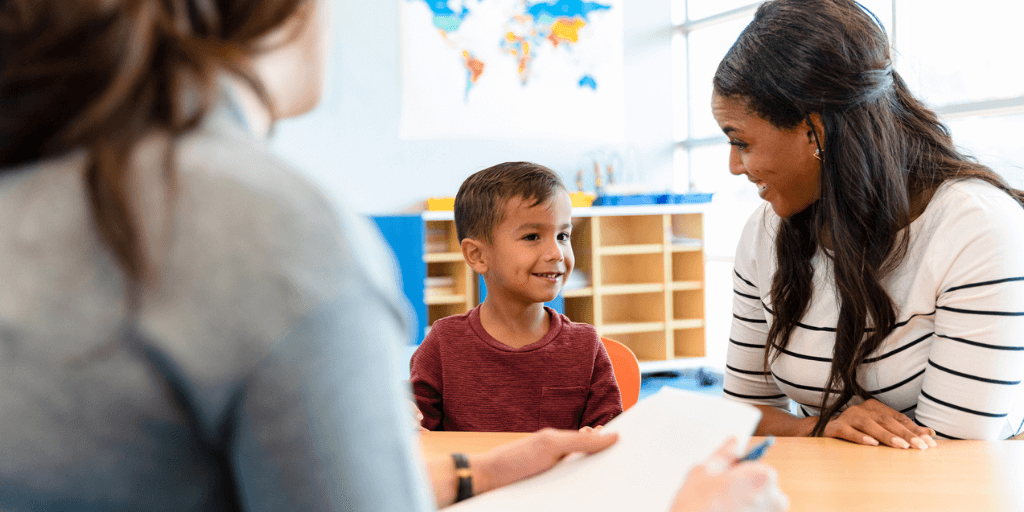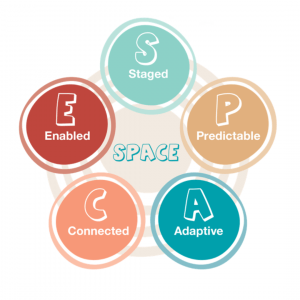
Kimberley SPACE: A new approach to supporting children with diverse learning needs
‘Kimberley SPACE: a new approach to supporting children with diverse learning needs’ blog article was written by Jennifer Knoll, Senior Consultant, and Lyn Millet, Executive Manager, Education and Safeguarding Services team at Australian Childhood Foundation.
Australian Childhood Foundation has a long history of working with educators across Australia to support trauma-responsive practice in schools and education settings. In 2022, we had the opportunity to expand upon our work in this space by designing a unique new program for both teachers and students, especially tailored to those with diverse learning needs.
 Kimberley SPACE was born from an emerging understanding that students with diverse learning needs can have developmental vulnerabilities in the domains of social competence and emotional wellbeing. An analysis of Australian Early Development Census data showed a high percentage of these children in the Kimberley region of Western Australia.
Kimberley SPACE was born from an emerging understanding that students with diverse learning needs can have developmental vulnerabilities in the domains of social competence and emotional wellbeing. An analysis of Australian Early Development Census data showed a high percentage of these children in the Kimberley region of Western Australia.
Kimberley SPACE translated and expanded the Foundation’s ‘Making Space For Learning’ framework into an accessible, child-friendly, whole-of-school program. ‘Making Space for Learning’ draws on neurobiological evidence related to trauma and considers principles and strategies to support students to learn and strengthen their social relationships and emotional wellbeing.
We designed Kimberley SPACE for the general student population ensuring accessibility for all students. The domains of the framework – Staged, Predictable, Adaptable, Connected and Enabled – were translated into child needs statements. These needs statements then provided the ‘big idea’ for each week of lesson plans. For example, Big Tree Doll Morty was an integral part of the lesson plans, assisting students to feel safe and know about what makes a safe connection (this need was linked to the domain, Connected).
By supporting students to explore and respond to a needs-based curriculum, school staff were able to learn new ways to better meet the social and emotional needs of their students. This approach invited primary school students to learn more about their social and emotional selves with the central concepts of social competence and emotional regulation explored throughout the eight-week program. The program embraced and integrated the concepts of social and emotional wellbeing as defined within an Aboriginal and Torres Strait Islander perspective, understanding that the wellbeing of individuals, families and communities are shaped by connections to body, mind and emotions, family and kinship, community, culture, land and spirituality.
An evaluation of the Kimberley SPACE program, completed in November 2022, outlined some of the most important program principles underpinning its success:
- Social and emotional focused curriculum can increase children’s self-understanding and awareness
- Cultural safety and responsiveness are important considerations in the design and implementation of this program
- Children have expertise into their own lives and insight into their needs
- Needs require relational investment
- Cultivating spaces and ways for adults to hear and learn from children is important, useful, and respectful
The Kimberley SPACE pilot program received overwhelmingly positive feedback from multiple stakeholders. The model used in the pilot built on the proven approach behind the ‘Making Space For Learning’ framework, and was adapted further based on children’s needs, a consultative committee with local educational and cultural representation, comprehensive teacher training, ongoing support, a flexible approach to incorporating cultural differences and regular opportunities for staff and students to provide feedback. This could form the basis of the program being used in other regions. The experience paves the way for more pilot programs like it, delivering additional support to teachers and students to build social and emotional wellbeing.
Subscribe to the Professionals Newsletter
Join our community of more than 40,000 professionals from around the world who receive our weekly newsletter containing articles. Our newsletters help connect you to our blog, research, and free resources as they are produced. We also keep you informed on training opportunities including access to experts in the field, webinars, international speaker tours, conferences and more.
